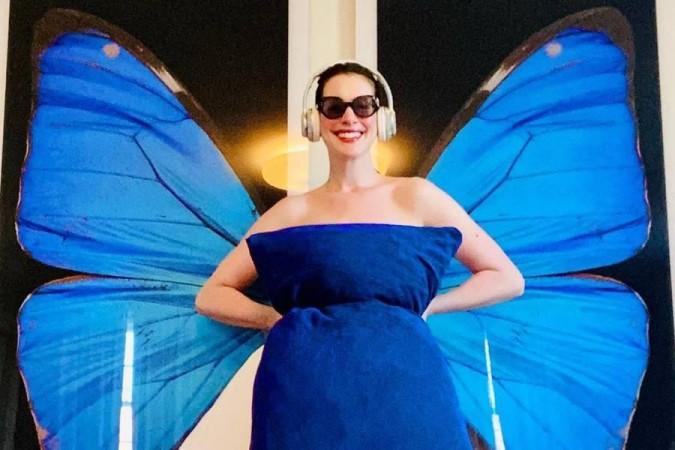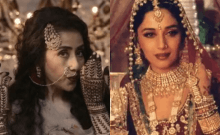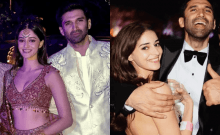Writing journals may have been a popular practice for the longest time, but somewhere it was Amelia Thermopolis who brought this trend back again in 2001 when The Princess Diaries released worldwide. At a time when most American teen films were all about cheerleaders, pretty faces being the cooler lot of high-schoolers, The Princess Diaries changed the perception.
It's difficult to chronologically remember when exactly we fell in love with Anne Hathaway. She was undoubtedly adorable in her debut film, The Princess Diaries, but soon with her variety of appearances in film such as Ella Enchanted, The Dark Knight Rises, Brides Wars, Devil Wears A Prada, Les Miserable, The Intern, she slowly grew in us as a woman, a survivor, a best friend, a fighter.

The young A-Lister from Hollywood completed 38 years in 2020, but when you take a quick look at her Instagram and you still see her as the young Princess Mia, except with a little bit more confidence in her expressions.
She was quite well adored by the audience after her initial releases, but instead of remaining America's sweetheart, she chose to take risks, and explore further the aspects of being in the creative profession. (A risk, not many actresses are willing to take, especially when they are already popular enough to win the People's Choice Award).
How Hathaway overcame hatred
A certain kind of unexpected hatred for Anne Hathaway began when she chose to play Fantine in 2012 film Les Miserables. She found herself to be on various trends but mainly for the wrong reasons. When she tried to break away from her cute princess image, she was immediately seen as the woman who was trying too hard to impress the Oscar, Emmy lobby. During this phase, Anne even in her public appearances bore an expression of indifference. Much later she had opened up about her phase in various interviews.
Although for the longest time 'not liking Anne Hathaway that way' became fashionable among the mass, she continued to select projects, till it reached a phase where everyone had to digest the new truth that Anne is more than a pretty-faced princess and she is here to stay...
Anne's rise in Hollywood
She went head-to-head with A-lister Hollywood stars such as Matthew McConaughey, Christian Bale in Christopher Nolan's Dark Knight Rises and Interstellar. She comfortably shared the screen space with Robert Di Niro and made her mark in The Intern. Somewhere as Jules, even while she ran a successful empire, she suffered from the fear of being too successful than her homemaker husband. Her fear of being buried alone with strangers in the graveyard reflected an unknown, foolish fear, one often tends to have of dying all alone and living life as an old maid, while the partner gets a second chance at happily ever after. Even in the web-domain, in Amazon Prime Video's anthology series Modern Love, she played an entertainment lawyer Lexi who suffered from bipolar disorder.
During a certain phase in her career, she may have received negativity but has that really affected her? Isn't she a woman who has it all, a secured married life, two children, back to back blockbuster film, and also an Oscar?
The classic woman from English literature
Becoming Jane, and Nicholas Nickelby are two films of Anne Hathaway which are not very well known. They are not the first films which appear on the search button when one hunts for the filmography of Anne Hathaway. In these films, Hathaway was seen in her English attires, in the moors of England.
"The very idea of Jane Austen with a broken heart may be thought vulgar and pedantic by her modern readers, and the way the story pans out is not convincing. But it's amiably intended. Perhaps the time has come for Anne Hathaway to bow to destiny and play the wife of England's greatest poet," The Guardian had mentioned in its review.
Becoming Jane and Nicholas Nickelby had been a triumph for Anne Hathaway, where she performed with balanced intensity along with a secured British accent that didn't seem strained. Jane Austen was a feminist (in true sense) way before the term became synonymous to bra-burning, men-hating woman. Hathaway, in her strength of performance, reminded us what it really meant to be a modern woman, who doesn't hate men, but she doesn't want to marry a juiceless man, even if he had all the largest fortune in England.





![BJP fields Tashi Gyalson for Ladakh; drops sitting MP [details]](https://data1.ibtimes.co.in/en/full/797185/bjp-fields-tashi-gyalson-ladakh-drops-sitting-mp-details.jpg?w=220&h=138)








